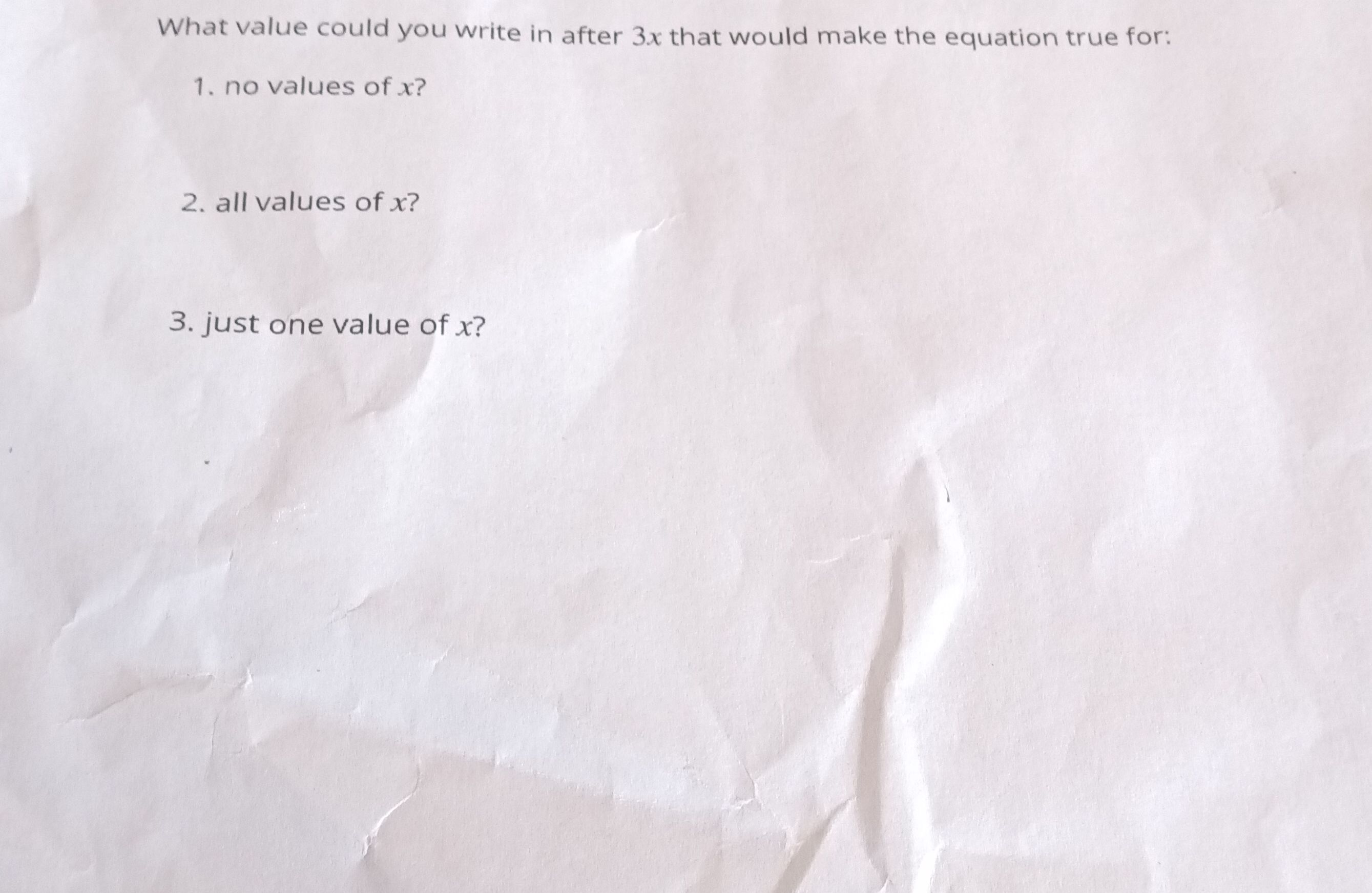Full solution
Q. What value could you write in after that would make the equation true for:. no values of ?. all values of ?. just one value of ?
- Choose Expression Greater Than : To determine what value could be written after to make the equation true for no values of , we need to think of an expression that would never equal regardless of the value of . A common example of such an expression is one that is always greater or always less than any value could take. For instance, , where is a positive number, will never be equal to because adding a positive number to will always result in a value greater than .
- Use for All Values: For the equation to be true for all values of , the expression after must be something that is always equivalent to . The simplest expression that satisfies this condition is itself. So, if we write after , the equation will be true for all values of .
- Add Constant for Single Solution: To make the equation true for just one value of , we need to add a constant or another term that would make the equation solvable for a single specific value of . For example, if we write , where is a constant, the equation will only be true when satisfies the condition that . This will give us a single solution for .
More problems from Roots of integers
QuestionGet tutor help
QuestionGet tutor help

